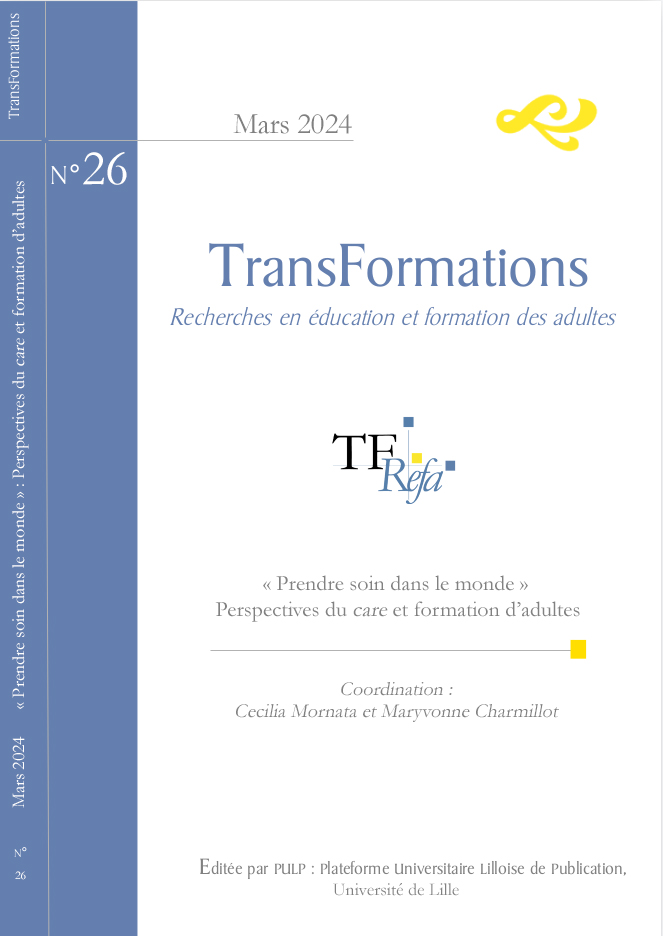Abstract
By stating that “all moral theories fit better with some rather than other social and political institutions”, Joan Tronto underlines that care is not only an ethical issue but also a political one, a global social project. In order to build a caring society, some authors suggest that it should become like an extended family, but such a vision carries paradoxes and dangers. Another way of envisioning a utopia of socialized care is to argue in favour of family abolition. This article aims at analysing these two visions, focusing on its consequences towards education.
Keywords: care socialization, family institution, feminist education, political philosophy, private sphere.

This work is licensed under a Creative Commons Attribution 4.0 International License.

